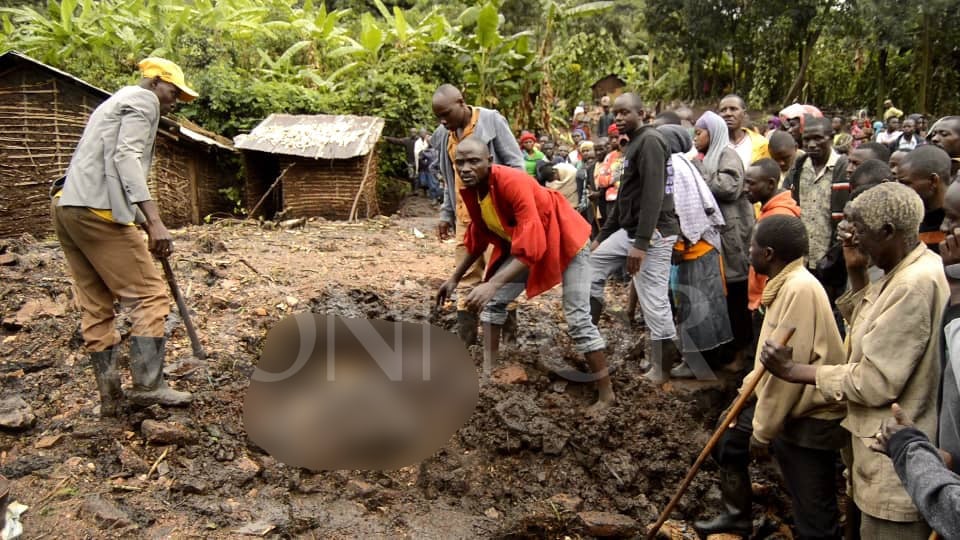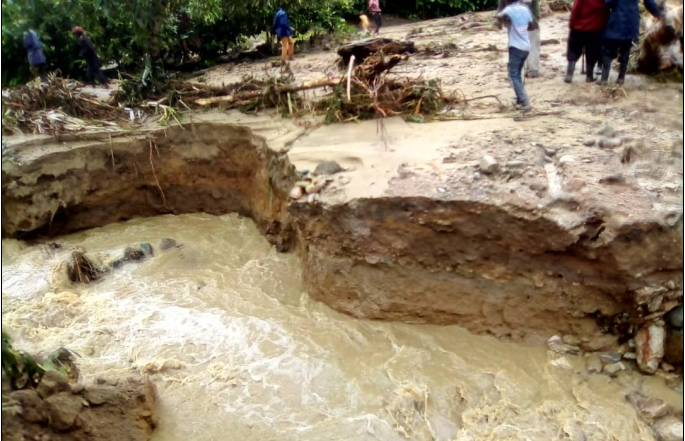Prime
Kasese stares at hunger after trail of disasters

Residents inspect a section of Kasika Trading Centre in Kasese District that was ravaged by floods in September. PHOTO/JOEL KAGUTA
What you need to know:
- The district has been experiencing disasters since 2013.
- Shs65.6b: The amount of money the district needs to address the issues of disasters, according to the disaster post recovery report compiled by Kasese District Disaster Committee.
A food crisis is looming in Kasese District following the destruction of several acres of crops by back-to-back disasters.
Preliminary findings by the district disaster committee show that there has been mass destruction of crops, which have left a big gap in food production.
According to district officials, a total of 1,597 acres of both cash and food crops have been destroyed by floods and landslides since May 2020 to date.
In May 2020, a total of 141 acres of maize, 308 acres of cassava, 402 acres of bananas, 224 acres of beans, 42 acres of rice, 40 acres of ground nuts, 305 acres of coffee, 216.5 acres of eucalyptus, 300 acres of cocoa, 200 acres of vanilla, and 109 acres of sugar cane were destroyed, according to the district disaster report.
A total of 72 cows, 58 goats, 12,145 poultry, and 121 pigs died and 94 fish ponds and 159 apiaries were also destroyed.
Last month’s disaster left 16 people dead in Kasika Trading Centre and 170 acres of crop gardens destroyed in five villages.
Mr Yosam Bwambale, a resident of Kasese District, said his family is starving because his gardens were washed away by floods.
Mr Bwambale said the district has been hit by disasters since 2013 and he has been a victim of some of them.
“I have witnessed what climate change means to a local person like me. My family is starving without anything to feed on. The government should relocate me to a safer place to avoid being killed by the landslides,” he said.
Ms Agnes Biira Katsombyo, a resident of Kivegenyi Village in Karusandara Sub-county, said her banana plantation, which was sitting on four acres of land, was destroyed in 2020.
She said she has failed to replant because she is scared that another disaster will destroy it.
Mr Katsombyo added that she lost three cows in the recent disaster.
The Kasese Municipal Environmental Officer, Ms Evelyn Mugume, said: “Our people are poor and still illiterate about the climate adaptation mitigation measures, which would reduce the side effects of climate variations.”
She added: “These hills have been cleared for agriculture without modern methods of farming like digging of terraces and mulching. That is why the district is hit by the scorching of crops during the dry spell and soil erosion during the rainy season.”
According to the disaster post recovery report compiled by Kasese District Disaster Committee, Shs65.6 billion needed by the district to address the issues of disasters
The district’s principal agricultural officer, Mr Julius Rukara, said if they get funds they will help flood affected households to get assorted agricultural and livestock inputs.
He said they will also sensitise the locals about the climate adaptation measures to curb the effects of climate change.
“Disasters are causing a lot of problems in food chains,” he said.




